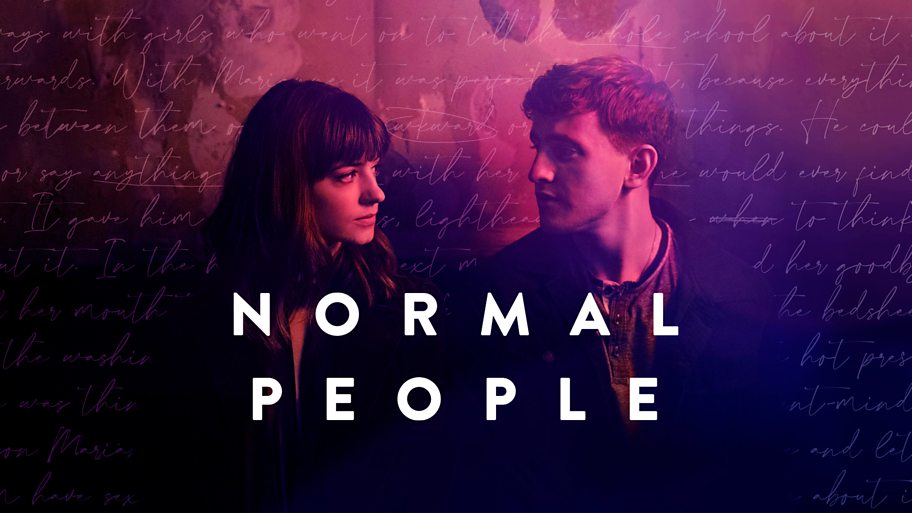 (4 / 5)
(4 / 5)
Normal People, written by Sally Rooney, Alice Birch and Mark O’Rowe and directed by Lenny Abrahamson and Hettie McDonald is based on the novel by Sally Rooney and stars Daisy Edgar-Jones and Paul Mescal.
I came to this with no knowledge of the book and for that I am grateful; some of the finest qualities of this drama are in the screenplay, direction and, above all, in the acting, and, whatever the qualities of the novel, this is a piece of art in its own right and should be judged as such.
The characters played by Edgar-Jones and Paul Mescal are Connell and Marianne. The story begins with them in their last year of High School in County Sligo in the Republic of Ireland and follows them in twelve short episodes through the end of Sixth Form and on through their undergraduate years at Trinity, Dublin.
Psychologists and our own experience teaches us that what we go through at this time in our lives identifies us for ourselves – we always see ourselves, in some sense, as what we were then, as our life is at its most intense for us. The music, the art, the sport and above all the relationships experienced at this time, we come to think of as ‘our time’, ‘our era’.
https://www.bbc.co.uk/sounds/play/p08b6f9p
It is this quality which drives not the narrative but the emotional landscape of this superb drama. There is an unerring touch with the writing, editing and the resulting atmosphere of this piece which makes us feel intensely for Connell and Marianne as they stumble into and through their love.
There are a number of likeable and quite well-drawn characters in this piece; Connell’s mother, played beautifully and with real restraint by the gorgeous Sarah Greene is the most notable of the supporting cast – but support is all they ever really are. You can draw each figure with a sentence as they never matter for themselves, only for the way in which they impact upon Marianne and Connell. Marianne’s mother and brother clearly impact her life horribly, but it is the impact on her only which is allowed to interest us. They cannot be allowed to take our eye off the ball by mattering in and of themselves. The awful death of Connell’s school friend is a central trope which is explored in depth, but we don’t know the boy or care for him, we know Connell and watch him experience his grief. Similarly, the ghastly boyfriend of Marianne’s is little more than a cipher to show us more of Marianne herself and of Connell. There is great discipline in the screen writing which never allows us to shift our focus or interest away from our real subject.
The work is intensely claustrophobic; we are almost suffocated by the script and the camerawork; we feel voyeuristic and deeply uncomfortable at being present for such private moments, which are handled beautifully and with the surest of touches throughout. There’s an awful lot of sex. Thankfully, it is almost always between Connell and Marianne – Edgar-Jones and Mescal got to know one another very well, without a doubt. In a world were sex for young people can become so commoditised and influenced by pornography, the simple, tender, naïve couplings of these two youngsters is quite lovely.
There are funny moments, deeply touching moments and an awful lot of dreadfully sad moments. It was a fine decision to keep episodes so short – we could let ourselves breath after half an hour and feel some measure of relief that it was over, then long for the next episode to begin.
In watching Connell and Marianne we watch ourselves. That, I think, is the most wonderful thing about this drama – the way in which it takes us to that time in our own lives. The quality of the work delivers emotions which are raw in the extreme and our late teenage and early twenties lives come roaring back at us like the Sligo waves.
Film and television acting is, by necessity, a very technical thing; making something so convincing, so visceral, so raw and so real then is a huge achievement. This is work of the very highest order and for those of us who shared Marianne and Connell’s journey, it will stay with us for some time.


I agree completely.